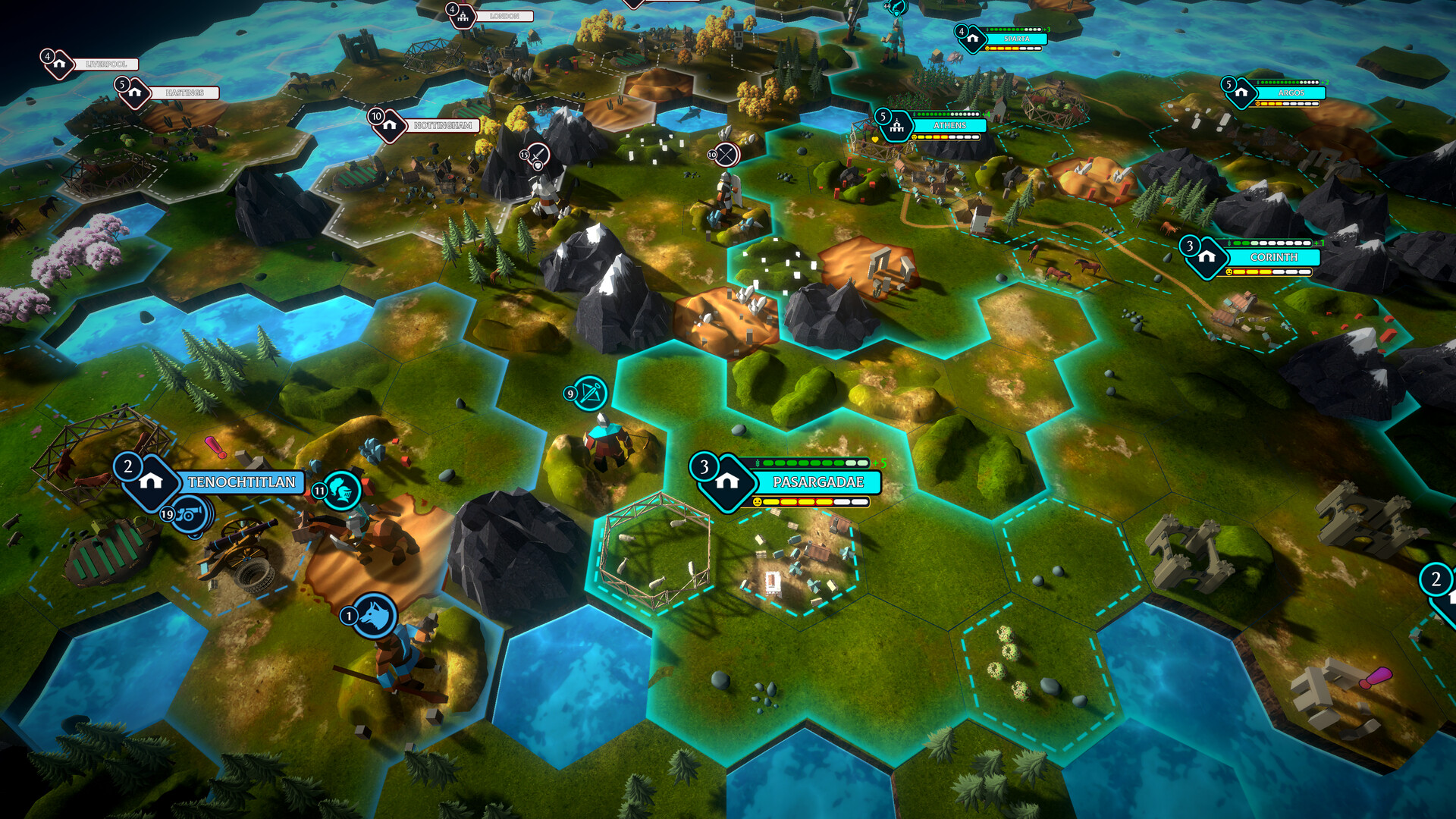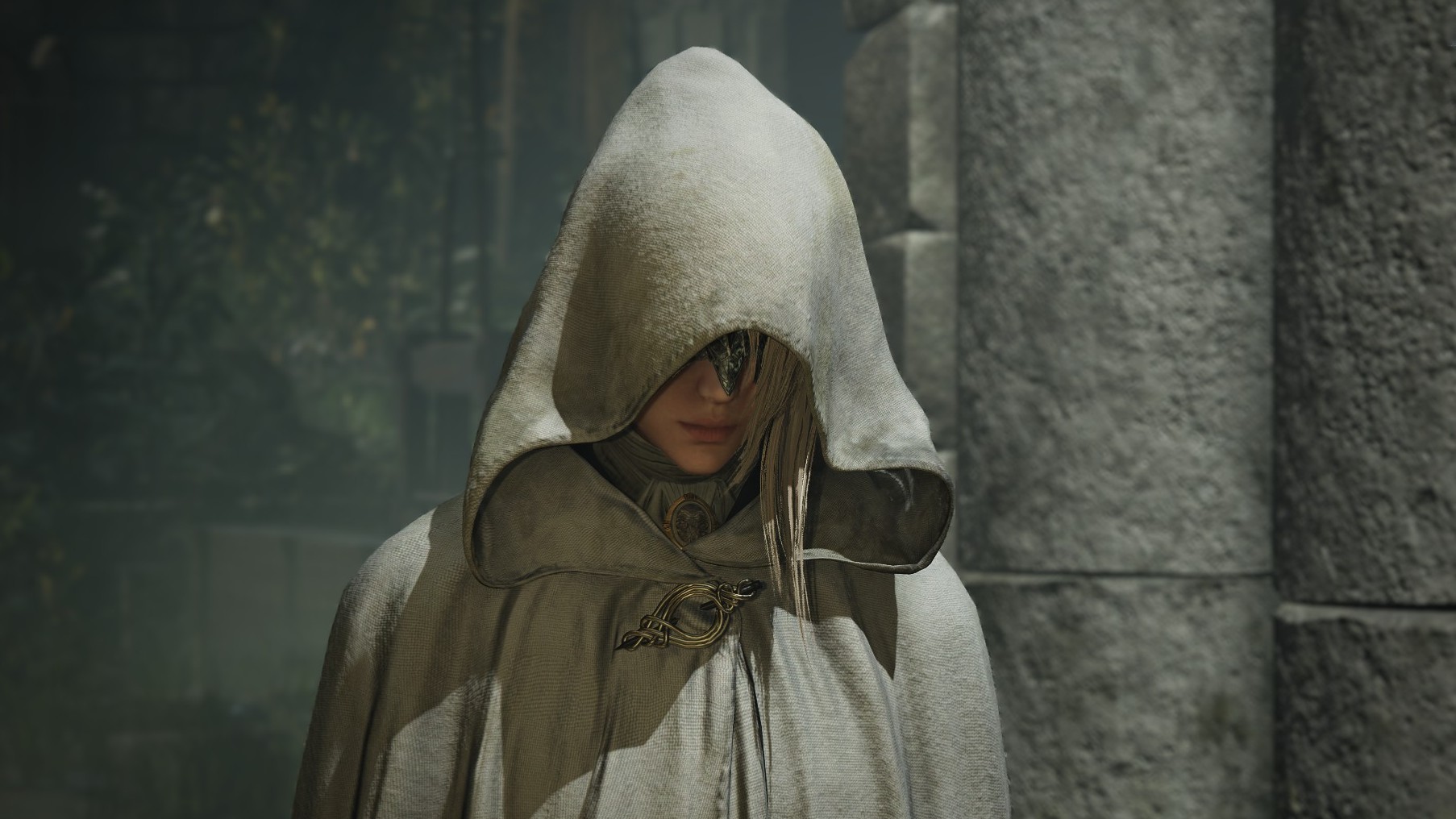
Counting cards to change the course of history.
A few turns into my campaign leading the Roman Empire, I take a leaf out of Nero’s playbook and burn my granary. Not the actual storehouse that’s keeping Rome’s citizens fed, but the playing card that would allow me to build another. Right now, I’m less interested in stockpiling food than I am in cycling through my deck for a few extra legionaries to fend off the French riflemen parked outside my gates. Forget tallying up turn counters, in Hexarchy, empires live and die by counting cards.
Each turn of this historical 4X strategy game starts with a draw, giving you a hand of eight cards that are used to construct buildings, recruit units, and enact special abilities. Things start out at a familiar pace, as you dispatch scouts to uncover the fog of a procedurally generated hex-grid map, use settlers to found new cities, and construct various buildings to reap the resources from the tiles within your territory. Mines need to be built to increase your production rates, vineyards laid to keep your food stocks high, and monuments erected to make your population happy.
(Image credit: Main Tank Software)
Technology cards, meanwhile, can be played to shuffle more powerful cards into your deck, bulking it up with extra units and abilities, and laying the groundwork for Hexarchy’s simple deck-building formula. While every card is recycled and reshuffled into your stack, each can be permanently binned for an instant hit of extra production power. That leaves you to optimize your deck to ensure every draw includes something useful, while being careful not to bin anything you might want to return to later. Typical deck-building fare, in other words, although rather novelly used here to grow a civilization.
“The deck-building card mechanics were primarily a means to an end,” says John White, one half of developer Main Tank Software. He and his brother Chris had originally set out to create Hexarchy to translate the staple pillars of 4X strategy into a format that better suited short, competitive multiplayer sprints. “Card mechanics worked well for that by bounding the decisions that you can make on a turn, so you only have one real set of decisions to deal with at a time.”
Nearly every decision is made through card play—bar unit movement, attack orders and trading—meaning you’re rarely overwhelmed by options. And even as you’re faced with the usual gamut of Civilization-style imperial matters to mull over, including population growth, luxury resources, border expansion, and world wonders, you’re spared from rooting around knotty menus and arrays of side tabs.
(Image credit: Main Tank Software)
“Some people go into it with an expectation that it’s less complicated than it is,” says White, and it’s easy to understand why given its surface similarities to other bite-sized 4X games like The Battle of Polytopia. Matches last for only up to an hour and are fought across compact landmasses that have you quickly rubbing up against your opponents. The card system, too, is intuitive enough that you could run on auto-pilot, but Hexarchy isn’t exactly 4X-lite. “What we’ve tried to go for is that there’s actually not that many systems, but they might interact in interesting ways that you wouldn’t expect,” says White.
I hit a pretty hefty learning curve when trying to balance my cities’ military expansion and deflating happiness, and fared better when I dropped the expectations I’d brought over from other 4X games. Various special resources like iron, horses and what seems to be a quantifiable unit of ‘science’ are needed to build advanced structures and keep your citizens happy. But they can also be used to replace the production cost of some cards, and even distributed individually if you want to precisely co-ordinate your settlements.
It’s those elements that lend Hexarchy a touch more complexity than what first impressions might suggest, although nothing is ever too taxing. Much of my time with this early build was spent optimizing my deck to enable tide-turning rushes that weren’t so much strategically impressive as they were lucky. During one turn, as the happiness meter of one of my cities was reaching the red, I drew a Forage card, letting me instantly gather the resources of a nearby tile to stave off famine and provide the residents with some precious oysters to keep them satisfied. A big win, and possibly a big fluke.
(Image credit: Main Tank Software)
Given that approachability, it’s little surprise that White says Hexarchy was originally inspired by Catan, one of the most popular board games in the world that’s served as many people’s gateway into the wider tabletop hobby. Like Catan, and distinctly unlike Civilization, matches of Hexarchy are won by accumulating a set number of points, rewarded to you for controlling hexes, increasing city population, and constructing special buildings like wonders and holy sites.
“I always thought that was really cool about Catan,” says White. “You feel like you almost have a path to victory. You’re never that far away, and even when you probably don’t have that much of a chance, you always feel like there’s some way you can pull it off.”
(Image credit: Main Tank Software)
While it prevents you from executing the kind of grand, hundred-turn-long schemes that the most exciting Civ games often end in, it serves Hexarchy’s quickplay format. Virtually everything you’ll do will inch you closer to victory, and a few of my matches still ended memorably. After the Russians destroyed the heavily buffed mamluk I was relying on to defend my capital, the city was left wide open. A spot of pillaging later, and they’d sent a Cossack forward to capture it, sweeping up all the points generated by its wonders and clinching the game.
Still, Hexarchy’s limited development resources occasionally show through. When an illustrated avatar of Julius Caesar appeared to inform me that “Rome’s might is imminent” in a robotic voice that was absent even a shade of feeling, I wondered if the message might have been better served as a text box. But the ability to finish a 4X game within an hour or less goes some way to make up for that lack of finesse. It’s unlikely to become your next strategy obsession, but Hexarchy looks like a respectably novel take on the form. Hopefully it’ll live up to that promise when it releases this year.


